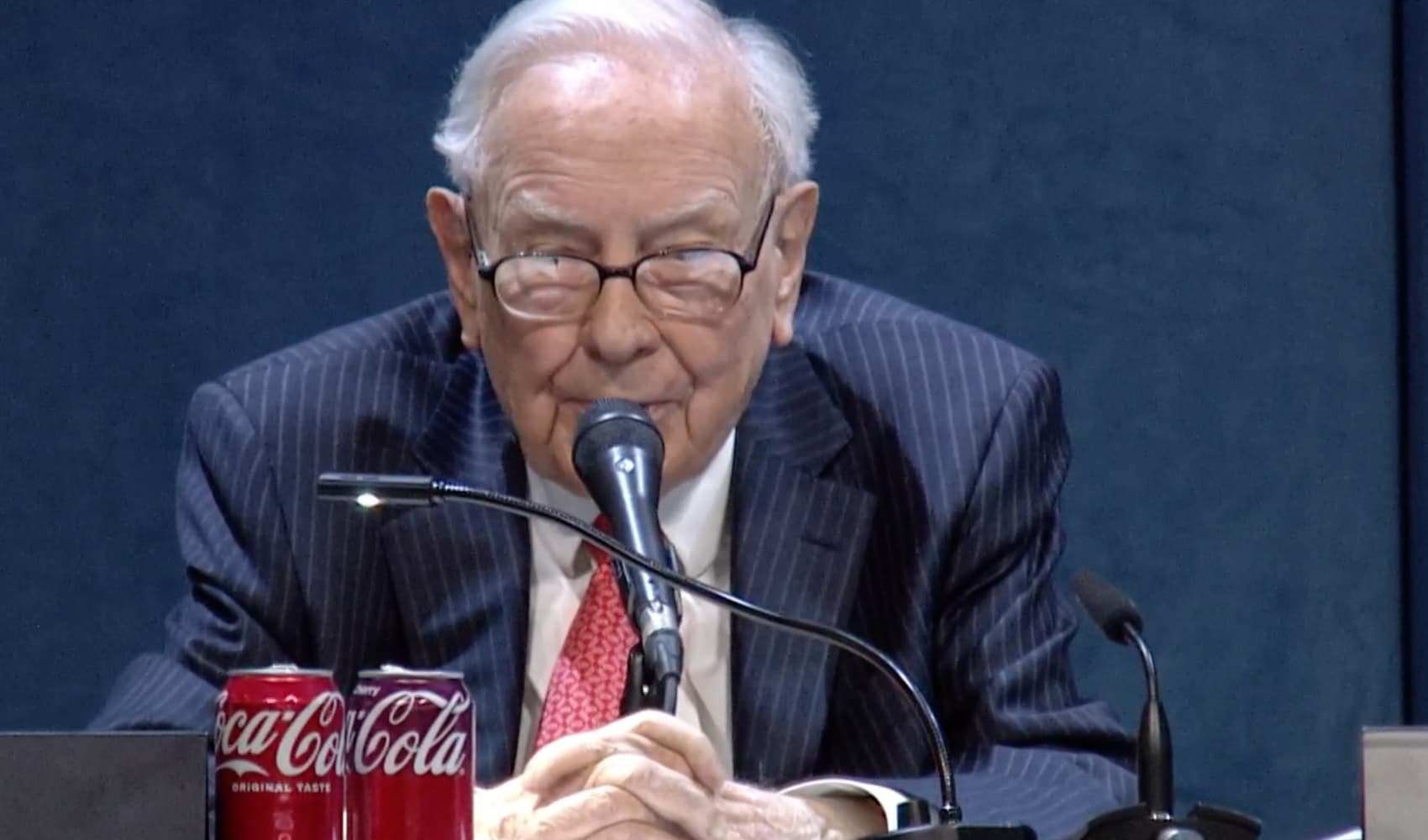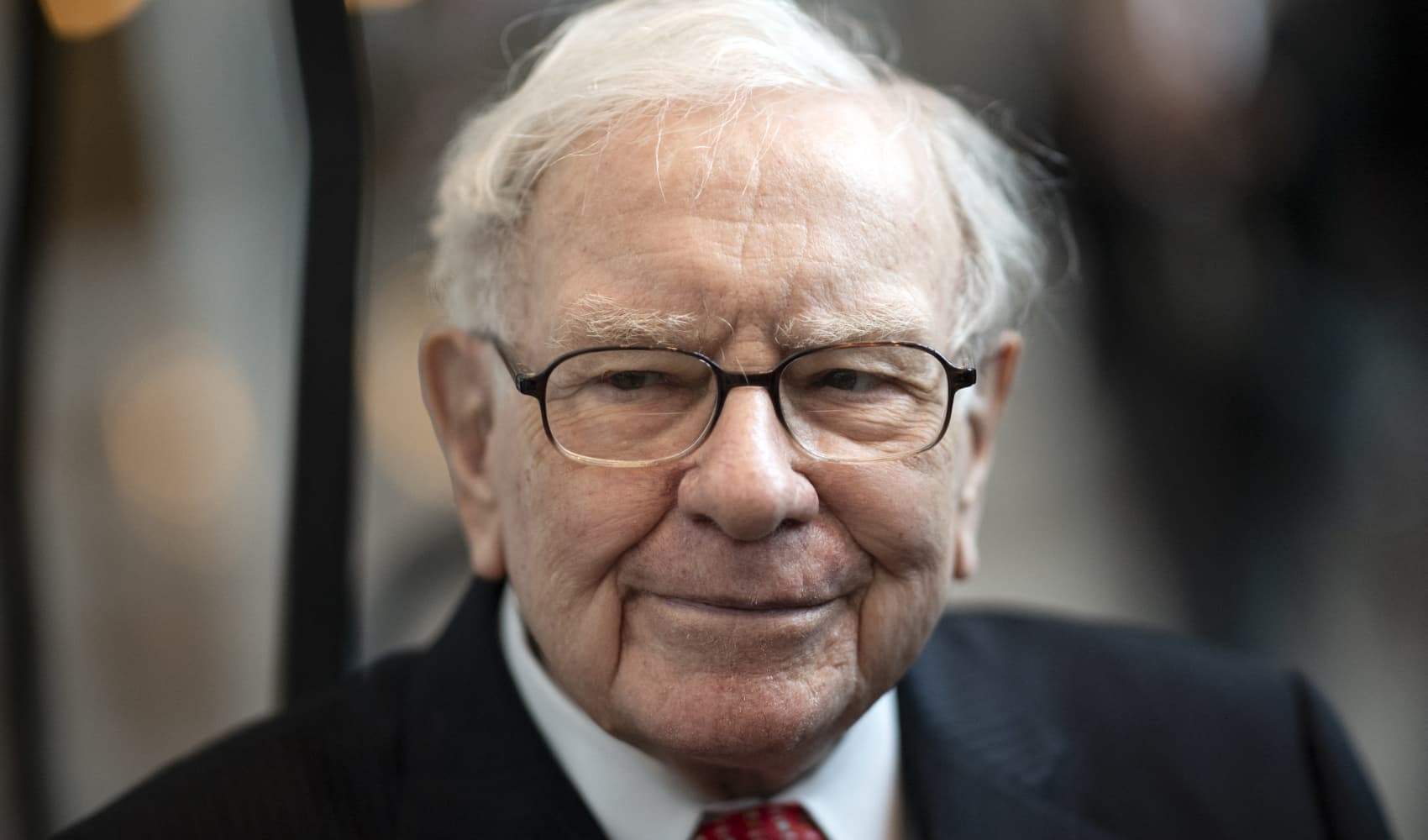Warren Buffett: Career Advice from the 94-Year-Old Legend
Warren Buffett's Wisdom: 94 and Still Shaping Success
A Legend Steps Back: The End of an Era?
Warren Buffett, the Oracle of Omaha, recently announced that he'll be recommending his replacement as CEO of Berkshire Hathaway to the board later this year. The lucky successor? Longtime heir apparent, Greg Abel. Imagine the sheer weight of that responsibility! The news, delivered at Berkshire Hathaway's annual shareholder meeting, was met with applause – applause that Buffett, with his characteristic wit, suggested could be interpreted in more ways than one. But let's be real, the overwhelming sentiment was appreciation for a leader who has delivered staggering returns.
After all, we're talking about a man who took the reins in 1965 and grew Berkshire Hathaway's stock by a mind-boggling 5,502,284% by the end of 2024. That's compared to the S&P 500's "mere" 39,054% return over the same period. In short, Buffett didn't just make himself rich; he made a *lot* of other people very comfortable, too. So, as he prepares to transition to a new chapter, what can we learn from this investing titan about building a successful career? Let's dive into some of his best advice.
The Power of Passion: Loving What You Do
Perhaps one of Buffett's most frequently cited pieces of advice is to find work you're genuinely passionate about. He often says that he "taps to work," meaning he's excited to get to the office every day. Why is passion so crucial? Because when you love what you do, you're more likely to dedicate yourself fully, push through challenges, and continuously strive for improvement. It's not just a job; it's a calling.
Following Your Inner Compass
Don't let external pressures dictate your career path. Listen to your inner compass and pursue what genuinely excites you, even if it seems unconventional. A career built on passion is a career built to last.
Integrity Above All Else: Building Trust is Key
Buffett is a staunch believer in integrity. He famously says, "It takes 20 years to build a reputation and five minutes to ruin it. If you think about that, you'll do things differently." In the business world, and in life, your reputation is everything. It's the foundation upon which trust is built, and trust is essential for long-term success.
The Golden Rule in Action
Treat everyone with respect, honesty, and fairness. Live by the Golden Rule – treat others as you would want to be treated. Your reputation will precede you, opening doors and creating opportunities that you never thought possible.
Lifelong Learning: Never Stop Growing
Buffett is an avid reader, consuming newspapers, books, and company reports at an astounding rate. He understands that the world is constantly evolving, and to stay ahead, you must be a lifelong learner. "The more you learn, the more you earn," he famously quipped.
Investing in Yourself
Make time for reading, attending workshops, taking online courses, and networking with people in your field. Continuously expand your knowledge base and develop new skills. Consider this an investment in your future self.
Patience and Long-Term Thinking: The Power of Compounding
Buffett's investment philosophy is rooted in patience and a long-term perspective. He doesn't chase quick profits; he focuses on identifying undervalued companies with strong fundamentals and holding them for the long haul. This same principle applies to career success. Building a meaningful career takes time, effort, and unwavering patience.
Planting Seeds for the Future
Don't expect overnight success. Focus on developing your skills, building your network, and making consistent progress over time. Just like compound interest, small efforts, consistently applied, will yield remarkable results in the long run.
Circle of Competence: Know What You Don't Know
Buffett is keenly aware of his limitations. He understands that he can't be an expert in everything, so he focuses on investing in industries and companies that he thoroughly understands. This concept, known as the "circle of competence," is crucial for avoiding costly mistakes.
Staying in Your Lane
Identify your strengths and weaknesses. Focus on developing your expertise within your circle of competence and avoid straying into areas where you lack knowledge or experience. It's okay to say, "I don't know." In fact, it's essential.
The Importance of Mentorship: Learning from Others
Buffett has had several mentors throughout his career, most notably Benjamin Graham, the father of value investing. He understands the value of learning from experienced individuals who can provide guidance, support, and valuable insights.
Finding Your Guiding Star
Seek out mentors who can offer advice and support as you navigate your career. Don't be afraid to ask for help or guidance. Mentors can provide invaluable insights and help you avoid common pitfalls.
Saying "No": Protecting Your Time and Energy
Buffett is known for his ability to say "no" to opportunities that don't align with his goals or values. He understands that time is a finite resource and that it's essential to protect it fiercely. "The difference between successful people and really successful people is that really successful people say no to almost everything," he says.
Prioritizing What Matters
Learn to say "no" to distractions and commitments that don't align with your priorities. Focus your time and energy on the activities that will have the greatest impact on your career.
Financial Literacy: Understanding the Numbers
Buffett's success is largely attributed to his deep understanding of financial statements and his ability to analyze companies. While you don't need to be a financial expert to succeed in your career, a basic understanding of financial literacy can be incredibly valuable.
Speaking the Language of Business
Learn the basics of accounting, finance, and investing. Understand how to read financial statements and analyze key performance indicators. This knowledge will empower you to make informed decisions and communicate effectively with colleagues and clients.
Embrace Failure: It's a Stepping Stone to Success
Buffett has experienced his share of setbacks and failures throughout his career. However, he doesn't let these experiences define him. Instead, he views them as learning opportunities and uses them to improve his decision-making process.
Turning Lemons into Lemonade
Don't be afraid to take risks and embrace failure. View setbacks as learning opportunities and use them to grow and improve. The most successful people are often those who have failed the most.
Stay Humble: Humility is a Strength
Despite his immense wealth and success, Buffett remains remarkably humble and down-to-earth. He understands that success is often the result of luck and hard work, and he never takes it for granted.
Keeping Your Feet on the Ground
Stay humble, even as you achieve success. Remember that you are always learning and growing. Treat others with respect and acknowledge the contributions of those who have helped you along the way.
Simplicity: Avoiding Complexity
Buffett is a proponent of simplicity in both investing and life. He avoids complex investment strategies and prefers to focus on businesses that he can easily understand. This same principle can be applied to your career.
Keeping It Simple, Stupid (KISS)
Avoid overcomplicating things. Focus on the essential elements of your career and simplify your processes as much as possible. This will allow you to focus your time and energy on what truly matters.
Effective Communication: Articulating Your Ideas
Buffett is a master communicator. He is able to explain complex concepts in a clear and concise manner. Effective communication skills are essential for success in any career.
The Power of Clear Expression
Develop your communication skills through writing, public speaking, and active listening. Learn to articulate your ideas clearly and persuasively. This will help you build relationships, influence others, and achieve your goals.
Giving Back: Making a Difference in the World
Buffett is a generous philanthropist, donating billions of dollars to charitable causes. He believes that it's important to use your success to make a positive impact on the world.
Leaving a Legacy
Find ways to give back to your community and make a difference in the lives of others. This can be through volunteering, donating to charity, or simply being a positive role model.
Adaptability: Thriving in a Changing World
The world is constantly changing, and to succeed in your career, you must be adaptable. Be open to new ideas, technologies, and approaches. Be willing to learn and grow continuously.
Embracing Change
Develop a growth mindset and embrace change as an opportunity for growth and innovation. Be willing to step outside of your comfort zone and experiment with new things.
Stay Curious: The Key to Innovation
Buffett's insatiable curiosity is a driving force behind his success. He is constantly asking questions, seeking new information, and exploring new ideas. This curiosity fuels his creativity and innovation.
Never Stop Asking "Why?"
Maintain a sense of curiosity throughout your career. Ask questions, challenge assumptions, and seek out new knowledge. This will keep you engaged, motivated, and ahead of the curve.
Conclusion: A Legacy of Wisdom
As Warren Buffett steps back from his role as CEO of Berkshire Hathaway, he leaves behind a legacy of unparalleled investing success and invaluable wisdom. His advice on passion, integrity, lifelong learning, patience, and humility provides a roadmap for building a fulfilling and successful career. By embracing these principles, you can chart your own course to success, create lasting value, and leave your own positive mark on the world. Remember, it's not just about making money; it's about making a difference. Now, go out there and build your own Berkshire Hathaway – whatever that means for you!
Frequently Asked Questions (FAQs)
1. What is Warren Buffett's most important piece of advice for young professionals?
Without a doubt, it's to find work you are truly passionate about. He believes that genuine enthusiasm fuels dedication, resilience, and continuous improvement, which are all essential for long-term career success.
2. How can I apply Buffett's "circle of competence" concept to my career?
Identify your strengths and weaknesses. Focus on developing expertise within your areas of knowledge and experience, and avoid ventures where you lack a solid understanding. It's perfectly acceptable, and often wise, to admit, "I don't know."
3. How important is financial literacy, even if I'm not in a finance-related field?
Understanding basic financial principles is incredibly valuable in any career. It allows you to make informed decisions, communicate effectively with colleagues and clients, and better understand the financial implications of your work.
4. What should I do if I experience failure or setbacks in my career?
Embrace failure as a learning opportunity. Analyze what went wrong, identify areas for improvement, and use the experience to refine your approach. Resilience is key. See setbacks as stepping stones to future success, not as roadblocks.
5. How can I find a mentor who can guide me in my career journey?
Seek out individuals who possess the experience, knowledge, and values that you admire. Attend industry events, network with professionals in your field, and reach out to potential mentors directly. Be prepared to articulate your goals and demonstrate your willingness to learn.

